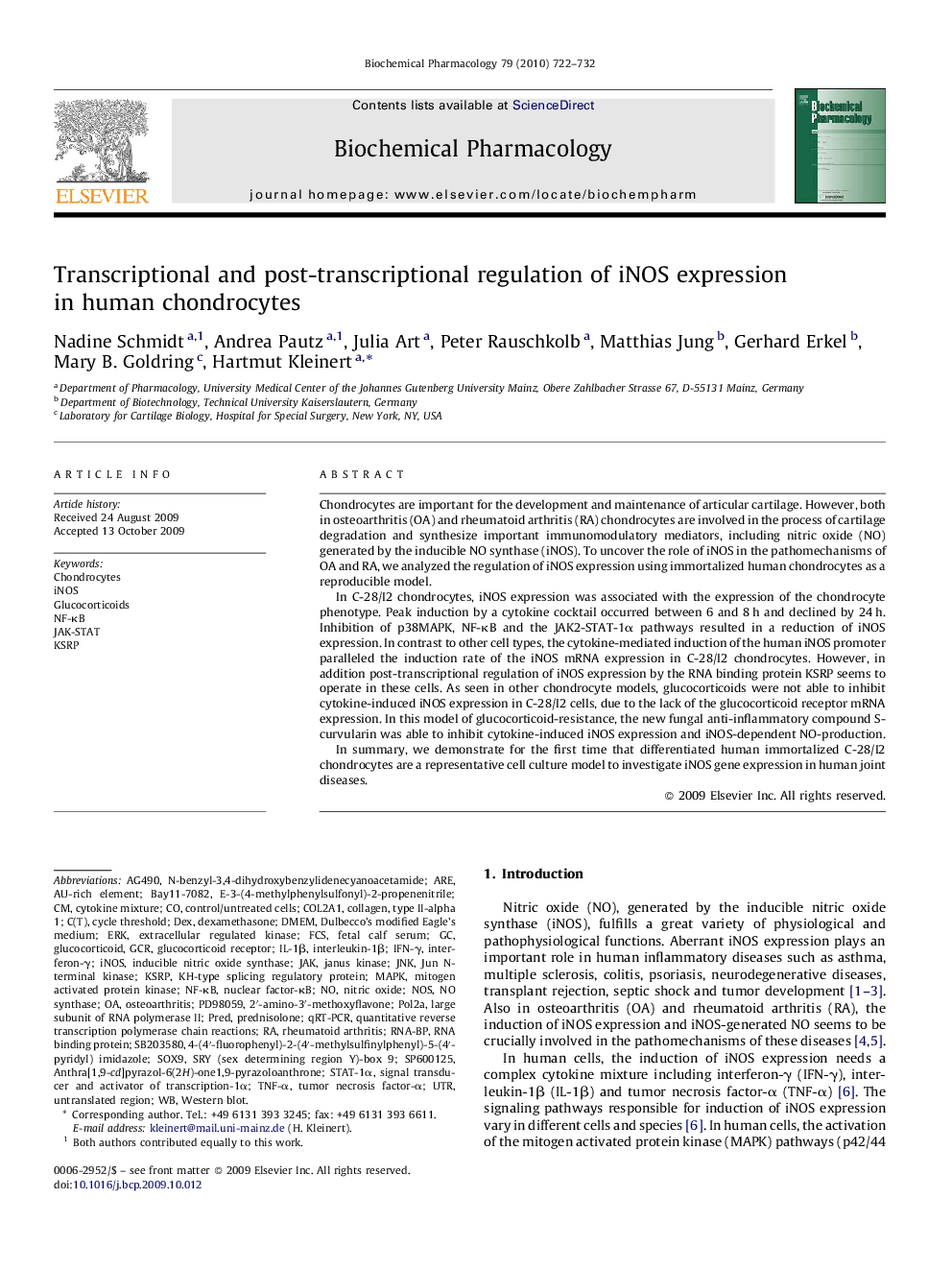| Article ID | Journal | Published Year | Pages | File Type |
|---|---|---|---|---|
| 2514460 | Biochemical Pharmacology | 2010 | 11 Pages |
Chondrocytes are important for the development and maintenance of articular cartilage. However, both in osteoarthritis (OA) and rheumatoid arthritis (RA) chondrocytes are involved in the process of cartilage degradation and synthesize important immunomodulatory mediators, including nitric oxide (NO) generated by the inducible NO synthase (iNOS). To uncover the role of iNOS in the pathomechanisms of OA and RA, we analyzed the regulation of iNOS expression using immortalized human chondrocytes as a reproducible model.In C-28/I2 chondrocytes, iNOS expression was associated with the expression of the chondrocyte phenotype. Peak induction by a cytokine cocktail occurred between 6 and 8 h and declined by 24 h. Inhibition of p38MAPK, NF-κB and the JAK2-STAT-1α pathways resulted in a reduction of iNOS expression. In contrast to other cell types, the cytokine-mediated induction of the human iNOS promoter paralleled the induction rate of the iNOS mRNA expression in C-28/I2 chondrocytes. However, in addition post-transcriptional regulation of iNOS expression by the RNA binding protein KSRP seems to operate in these cells. As seen in other chondrocyte models, glucocorticoids were not able to inhibit cytokine-induced iNOS expression in C-28/I2 cells, due to the lack of the glucocorticoid receptor mRNA expression. In this model of glucocorticoid-resistance, the new fungal anti-inflammatory compound S-curvularin was able to inhibit cytokine-induced iNOS expression and iNOS-dependent NO-production.In summary, we demonstrate for the first time that differentiated human immortalized C-28/I2 chondrocytes are a representative cell culture model to investigate iNOS gene expression in human joint diseases.
Graphical abstractFigure optionsDownload full-size imageDownload as PowerPoint slide
